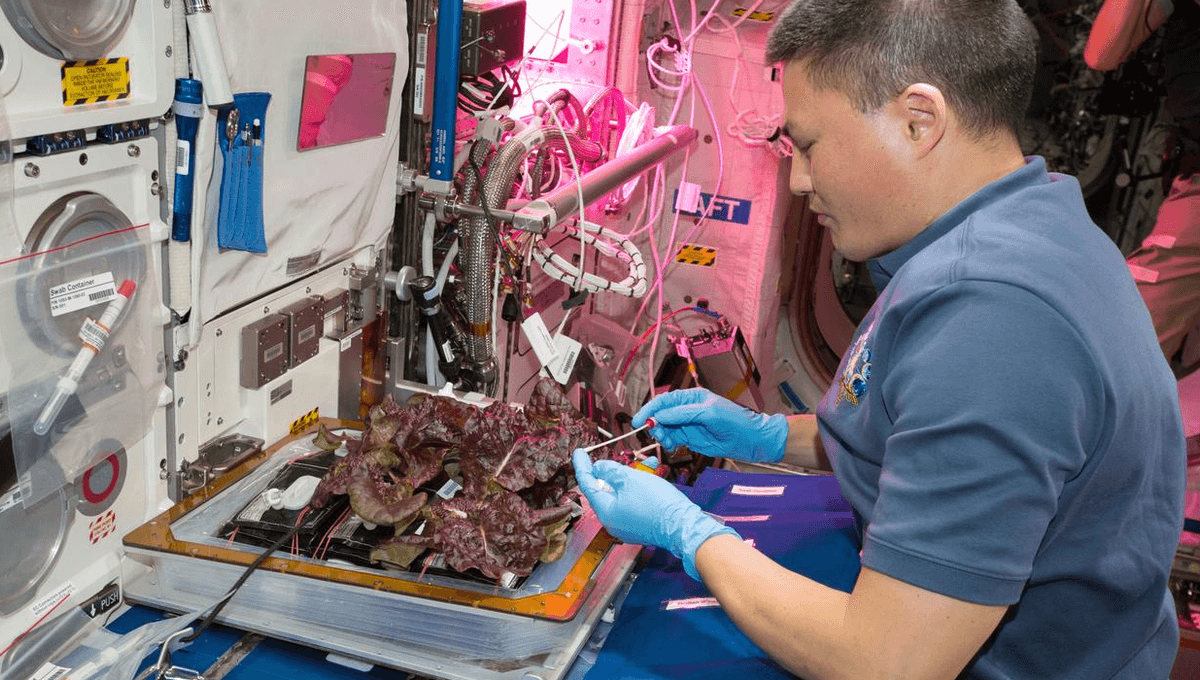
Some of the health effects astronauts suffer on the International Space Station (ISS) may not be a consequence of weightlessness, as previously thought, but of the ISS being too clean, a new study proposes. If so, there’s a relatively simple solution – make it dirtier. Whether the ISS has a long enough future to test this thoroughly remains to be seen, but the implications extend to future long voyages in space.
ADVERTISEMENT
Much science fiction, particularly Star Trek, presents an image of spotlessly clean future space ships, but perhaps this misled us. After all, an environment without microbes is as unnatural to humans as microgravity – perhaps more so since our time in water gave us some preparation for weightlessness.
Astronauts suffer a lot of ill-effects from their time in space, and can struggle to recover from long voyages once on Earth. This has been attributed to the combination of weightlessness and increased radiation exposure, but some of the symptoms don’t have an obvious cause from either source.
For example, immune dysfunction and other inflammatory conditions, including skin rashes, are common for spacefarers. Drs Rodolfo Salido and Nina Zhao of the University of California, San Diego led a team exploring the possibility a lack of a healthy biome might be responsible instead. The team had astronauts swab 803 surfaces on the ISS to see what microbes were present, a huge increase on previous studies that used single-digit sample sizes.
These samples were returned to Earth and studied. Most of the organisms came from human skin, with the Staphylococcus genus the most common, but unsurprisingly modules within the ISS where food is prepared or consumed have greater variety. You can probably also guess the microbes present around the toilet facilities.
Nevertheless, the presence of cleaning products and disinfectants demonstrated how much effort has gone into keeping the inside of the ISS sterile. Probably as a result, there terrestrial free-living organisms were almost entirely absent.
“We noticed that the abundance of disinfectant on the surface of the International Space Station is highly correlated with the microbiome diversity at different locations on the space station,” Zhao said in a statement.
ADVERTISEMENT
With all that cleaning, and no opportunity for new organisms to arrive every time a door is opened, it’s not surprising the ISS was found to have a much less diverse ecology than most Earthly built environments, hospitals aside.
Proving this diminished microculture is responsible for the astronauts’ ills is difficult, but the authors note, “Evidence increasingly links chronic inflammatory diseases in developed countries to reduced microbial exposures.” Lack of exposure to a range of microorganisms can lead to enhanced inflammatory response to lifeforms that are harmless under other circumstances. The ISS appears to be taking this to extremes.
Salido said, “Future built environments, including space stations, could benefit from intentionally fostering diverse microbial communities that better mimic the natural microbial exposures experienced on Earth, rather than relying on highly sanitized spaces.”
“There’s a big difference between exposure to healthy soil from gardening versus stewing in our own filth, which is kind of what happens if we’re in a strictly enclosed environment with no ongoing input of those healthy sources of microbes from the outside,” said senior author Professor Rob Knight.
ADVERTISEMENT
It’s ironic that the suspected survival of lifeforms on the outside of the ISS has attracted great attention, and some concern, when perhaps there should have been more focus on the shortage inside.
Elon Musk wants to bring the ISS down three years early to prioritize missions to Mars. However, if the lessons the ISS can teach are not learned in time, the crews he claims he’ll send to Mars instead, will suffer the same effects, made worse by the need to perform in peak condition on arrival.
“If we really want life to thrive outside Earth, we can’t just take a small branch of the tree of life and launch it into space and hope that it will work out,” said Salido. “We need to start thinking about what other beneficial companions we should be sending with these astronauts to help them develop ecosystems that will be sustainable and beneficial for all.”
Unfortunately, if proposals for future studies make mention of investigating the benefits of microbial diversity, they may get rejected by funding agencies without even being read.
ADVERTISEMENT
The study is published in Cell.
Source Link: The ISS Might Be Too Clean For Astronauts’ Health